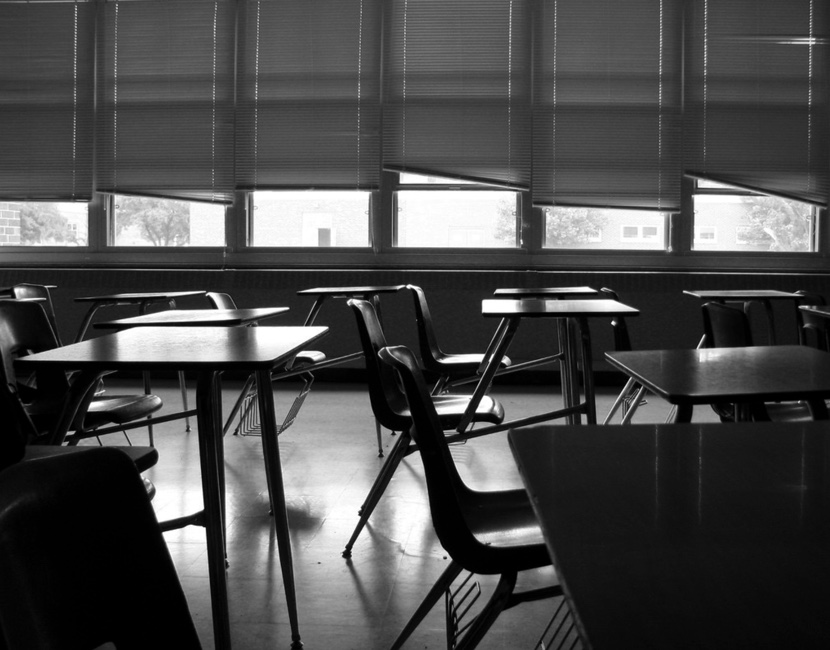The transitional phases we move through over the course of our lives tend to challenge our ability to adapt. As we approach a year living under this pandemic, that challenge lives with us every day. Attempting to manage our responsibilities, to branch out socially and to find a space for our personal development in these unfamiliar virtual environments has proved difficult no matter what your situation. But especially for college students like myself, almost everything has changed.
As a first-year University of Maryland, Baltimore County student in my second semester, I have walked away with some valuable insight into how best to succeed in an online world and build a community from behind your screen. Even as vaccinations roll out and hope for the end of this nightmare grows, I think the lessons I have learned are still equally valuable for current and future students.
When starting my first semester last fall, the question that pounded my brain, as I am sure it did for many other freshmen, was how would I connect? How would I build relationships among the endless web streams and Zoom calls? With a few months of COVID-19 already under my belt, where I was almost entirely unable to expand my social circles, I wondered how I would start at UMBC. With that reason and many more in mind, it is no surprise that many students and staff have found this school year to be one of the hardest academic transitions they have ever been forced to adjust to.
As a freshman, I have not yet had the luxury of experiencing a normal college environment, much of what consists in a college education is entirely foreign to me. Things like going to classes or eating in a dining hall are unimaginable. Having to adjust to university life, with the academic and social challenges that includes, all while being disconnected from campus resources, staff and my fellow freshman class, felt nearly impossible.
My first real success came from the virtual involvement festival. It was a chance to connect with various student organizations and see what UMBC had to offer me. I met countless new friends that day, and I got involved with the Vietnamese Student Association and Alpha Kappa Delta Phi Sorority. I felt an overwhelming sense of connection that I had been missing for months.
Since then, I have been better able to network and build relationships as I make my way through this first year. It has been not only a personal asset, but a professional gain as well. I have built on my connections and even been offered leadership opportunities through these now familiar organizations.
It started as something small. A link to click, an online website that was only live for a day or two, but it changed everything.
Looking back, I often wonder what it would be like if I had chosen to not access this event, or if I had not been aware it even existed. As we live isolated behind our computers, stressed out by every new notification that flashes across our screens, it would have been easy enough to miss or push aside.
If this experience had taught me anything, it was that I needed to grab a hold of every small opportunity I could find. Whether that be an involvement festival or an online game night, I could not afford to miss them.
Although this is a narrative of my freshman experience, other grades are struggling to accommodate as well and could benefit from the same advice. As many returning students and upperclassmen have adjusted to the typical college experience, the past few semesters have turned that sense of comfort upside down. Andrew Tran, a junior at UMBC double majoring in pre-nursing and media & communication studies, described their experience well, “My biggest challenge was finding the motivation and concentration to continue studying and doing work. While I was on campus, I had a lot of positive, external motivators like studying at the library with friends on a daily basis and being able to physically interact during my classes.”
Whether returning or not, all students are more disconnected and unmotivated than ever before. I have felt this, Andrew has felt this, and I am sure many others have as well. While there is a certain responsibility on the student to actively search for opportunities to connect, much of that burden should also be carried by the university.
While UMBC has laid out most of the online basic resources for students to use, there is still much more that could be done, and receiving and learning from student input should be a priority until this pandemic is over. Especially for teachers, engaging their classes with platforms for them to connect and events for them to build relationships with one another is key.
The circumstantial obligations we face this year as college students can be incredibly taxing on our mental health and academic performance, but we are capable of succeeding if we surround ourselves with support systems and remain open-minded to the chances we have to connect.
I encourage students and UMBC alike to go the extra mile when it comes to these resources. For students, that means stepping outside of your comfort zone and joining the seemingly small and unimportant events. For the university, that means using student feedback consistently and productively to make sure these places and platforms exist for students.
This pandemic may be constantly challenging us to adapt and forcing the means by which we grow to shift, but with the right steps and support, the capacity for our personal development and academic success remains limitless.
Written by Vivian Pham, Media & Communications Major and Psychology Minor, class of 2024.

